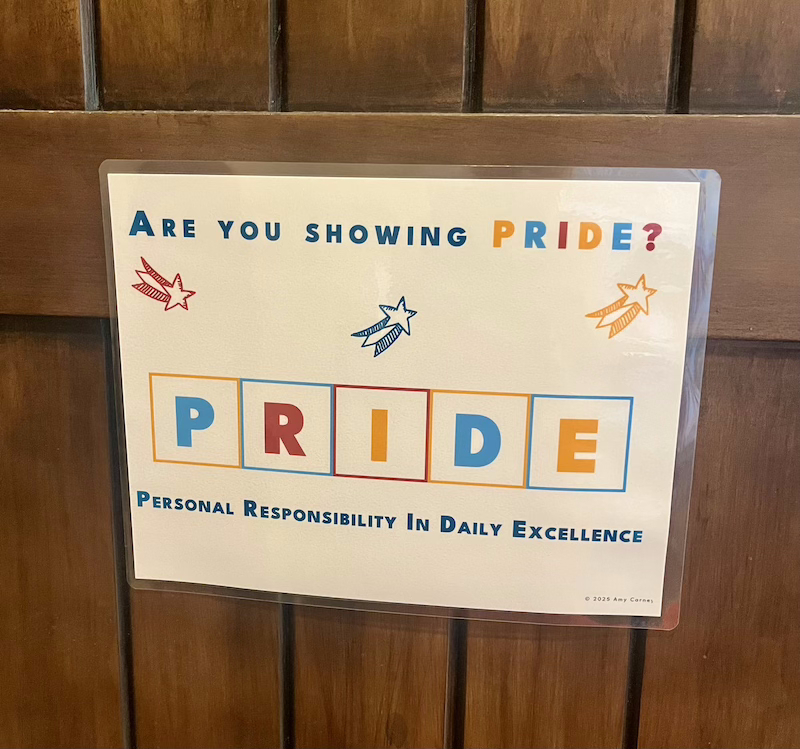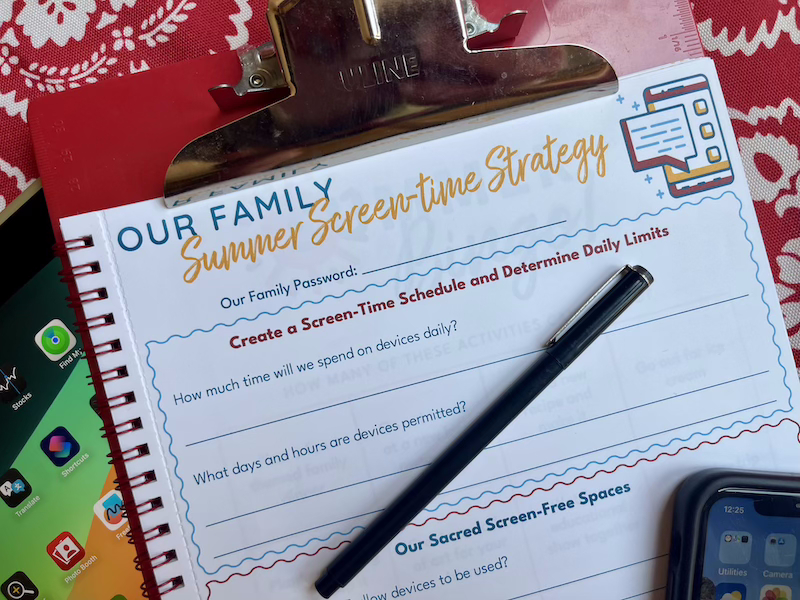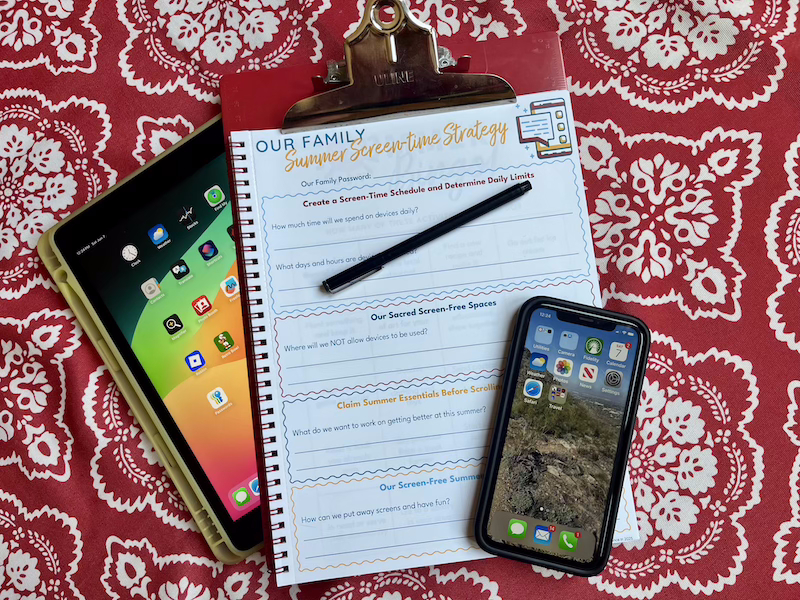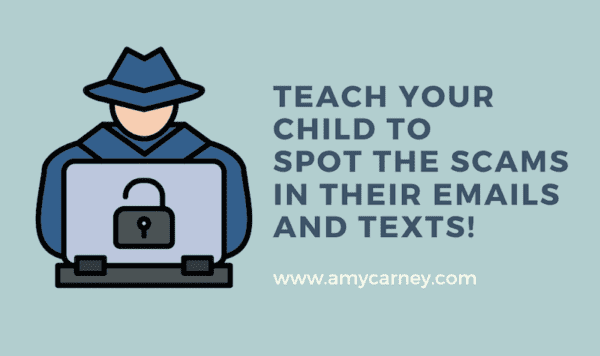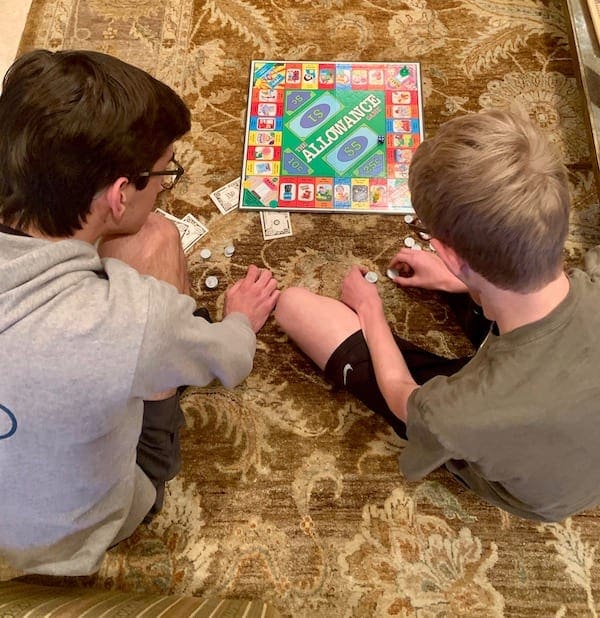When my kids were young, I knew I wanted to raise them in a family known for their kindness, generosity, and ability to love others well.
I didn’t know how difficult it would be as a parent to live this out though.
- We want our kids to be kind.
- We want our sons and daughters to be compassionate.
- We want our offspring to be loving and empathetic toward others.
But we can’t just want our children to grow up with these essential values and character traits; we must purposely show up in our home, community, and world and consistently show others kindness, compassion, love, and empathy.
How do we prioritize serving others in this busy culture we raise our kids in today?
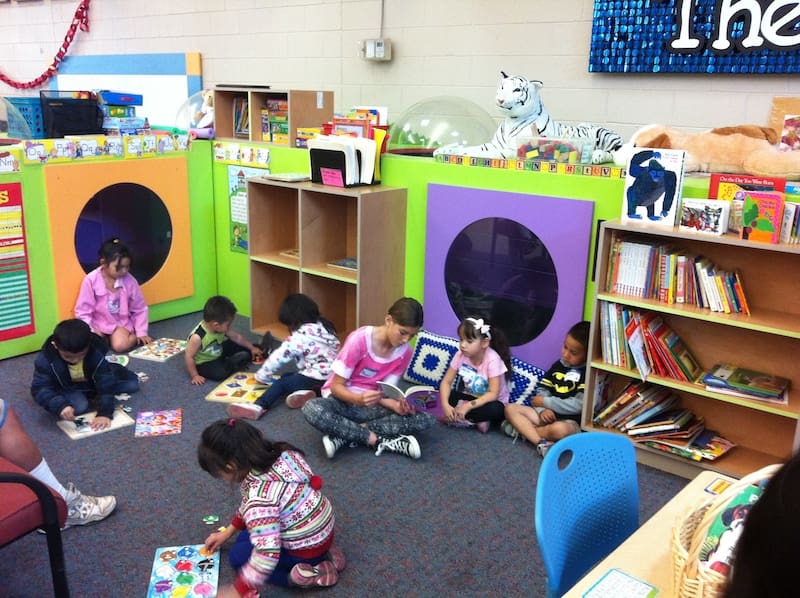
First, we must mind the gap between what we say we want and how we live.
In my book Parent on Purpose, I wrote about Harvard’s Making Caring Common Project report, “The Children We Mean to Raise,” where research indicates that 96% of parents report that moral character in children is “very important, if not essential,” yet 81% of the kids surveyed said that happiness or achievement is their parents’ top priority. The interviewees were also three times more likely to agree, “My parents are prouder if I get good grades in my classes than if I’m a caring community member in class and school.”
I don’t believe this is what parents genuinely want, yet this truth is our youth’s perspective. Therefore, we must shift how we, as parents, prioritize achievement and performance over character and values.

As parents, we say compassion, kindness, and empathy are traits that we want our child to embody, yet serving others is often the last thing we schedule on our overpacked calendar. Therefore, our sons and daughters learn that we fit in helping others after serving ourselves.
In this me, myself, and I culture that we’re raising our children in, we must create opportunities to serve others regularly.
Weave volunteering and community service into your family culture so that helping others becomes who you are instead of what you do. If we want to raise kind and caring kids, we must emphasize caring for others as we do achieving good grades and winning games.
If we want our children to learn the values of kindness, compassion, and empathy, we have to take the time to teach them how to be kind, compassionate, and empathetic.
To close the gap between what we value and the messages our kids internalize, we must confidently lead our children to opportunities and experiences where they can authentically absorb the values we want them to have.
How can we prioritize serving others instead of it being an afterthought while raising our kids today?
5 Ways to Make Serving Others a Priority in Your Family
1. Be the example
Prioritize serving others in your own adult life first. Let your kids watch you care for people regularly. Always model how you can help make someone’s life easier.
If we want our children to be kind and empathetic, we must embody those values ourselves. As Rabbi Lyle Fishman told us, “Service is caught rather than taught.” What our children watch us do is more important than what they hear us say.
2. Expect your child to help around your home
Before worrying about taking our kids out to volunteer in the community or serve abroad, we must ensure we are teaching our sons and daughters how to help in our homes first.

What needs do you have in your home that your children can help fill? Allow them to help around the house by taking out the trash, doing the dishes, or helping take care of your pet. Family members should be expected to contribute and support one another, however, and whenever possible.
3. Communicate about how you live out your values daily
Go around the dinner table regularly and discuss how you showed kindness to another that day. Let your conversations focus on the values you want your child to embody instead of the grades you want to be on their report card.
Have consistent family conversations about how you purposely show kindness, love, or empathy to others.

4. Volunteer in your community consistently as a family
Schedule regular family service opportunities so that volunteering is just something that you do in your family. You may have to say no to something you already have scheduled on your calendar to fit in community service, but remember you want serving others to be a priority, so something else must go.
Talk to others and see where they serve and volunteer in your community. Join a service group at your place of worship, through your workplace or kids’ school. Check Volunteer Match to find local opportunities.
5. Volunteer on Vacation
When you travel, look for volunteer opportunities or places you can visit to teach your children the values you want them to have.
When our family traveled around the USA in an RV for seven months, we purposely visited places that supported our values, such as Boys Town in Nebraska and Give Kids the World near Disney World in Orlando.

The next time you plan a trip, figure out where you may be able to serve that community amidst your family vacation.
- If we say that we want to raise kind kids, then it’s us who must teach our sons and daughters how to be kind.
- If we say we want to be a family known for their kindness, generosity, and ability to love others well, we must prioritize opportunities to live those values out consistently.
- If we say we want serving others to be an authentic part of our family culture, we must show up regularly.
No matter how overextended we may feel, it’s essential to take the time and make an effort to prioritize serving others, which will help our children develop the values and character traits that will make our world a better place.
